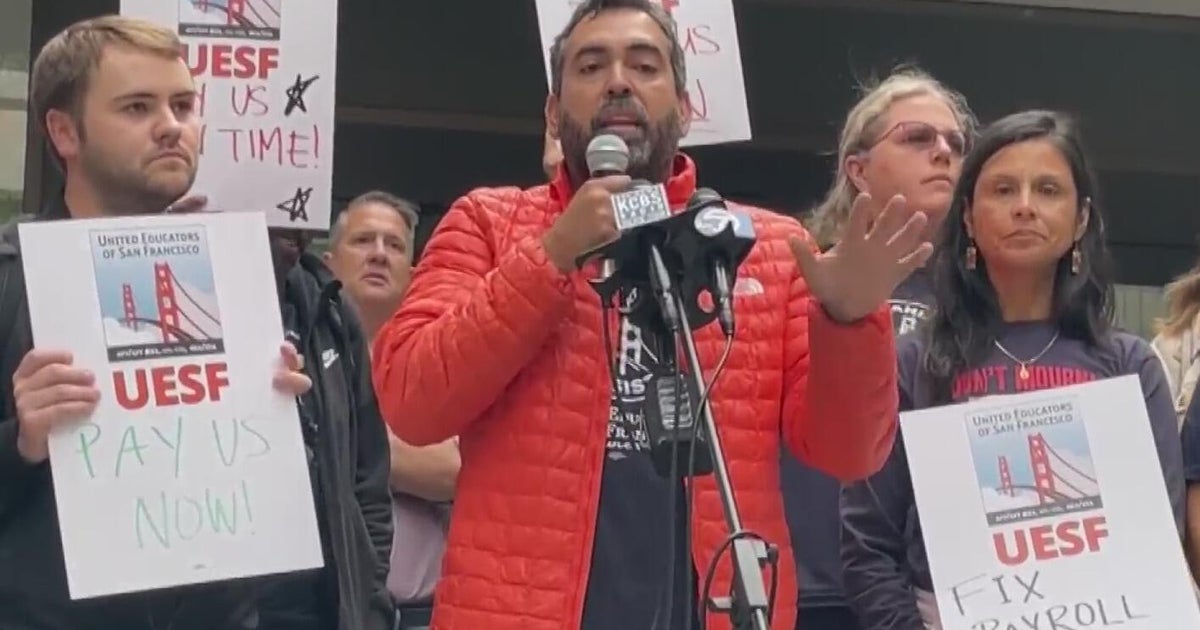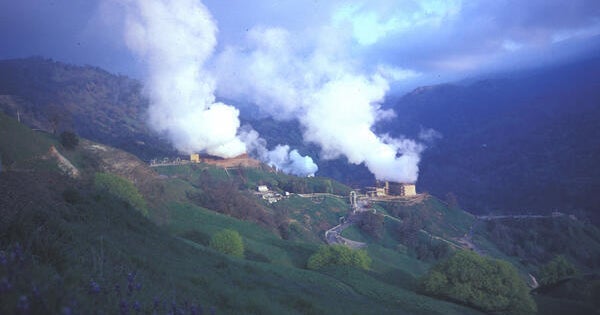Can Baijiu, The World's Biggest Selling Spirit, Find A Marketplace In San Francisco?
SAN FRANCISCO (CBS SF) - It's an estimated $50 billion business without even having a major foothold in the United States. But ask alcohol consumers about Baijiu and the first thing they'll likely ask is, how do you pronounce that [it's bye-jeeoh]?
The spirit has a long and storied history in China. It is mainly made of sorghum, a plant often raised for grain or used as a fodder plant. Wheat, sticky rice, and corn are also used in the distilling process, which is quite labor intensive. The grain is crushed then steamed, soaked in water and left in a dark room for months, which attracts microorganisms. It is then covered with local mud and sealed airtight, allowing it to ferment. The fermentation process can take anywhere from 30-140 days. The grain mash is extracted before being cooked, allowing the steam to release ethanol. Then they are put into one ton terra cotta jars for aging. It's a process similar to the production of mezcal. And although baijiu appears white in color, it is more typically categorized as a brown spirit.
Baijiu is typically categorized by its fragrance or aroma [thick, light, soy sauce, strong]. The distinctive smell of each variety of baijiu is part of the allure in the Chinese culture. Unlike other spirits, the distinguishing characteristic of each brand is immediately vibrant on the nose - it could be a smell of fruits like pineapple, melon or berries, a smoky scotch, or of fermenting or aging.
In China, people traditionally drink baijiu in small shots with their meal. It is seen as part of the social aspect of dining out. The host of the gathering will normally say something to toast, before everyone at the table toasts each other. Neighbors typically lower their glasses to each other, to see who can go the lowest, before drinking the shot of baijiu. During a normal lunch or dinner, 12-15 of these shots are consumed. That seems like a lot of alcohol, especially considering that a typical bottle of baijiu is 100 proof or higher.
Baijiu is immensely popular in China but in the United States, it is far more difficult to find. Walking in San Francisco's Chinatown neighborhood, those looking for the spirit can find it, whether it be at renowned dive bar Li Po, or Red's Place. But outside of the Chinese community, it is a rarity.
"We feel like the market is ready for this category of spirit," said Yuan Liu, SVP of Business Development with CNS Imports, the largest and oldest importer of baijiu. CNS has partnered with Private Cask Imports in an effort to bring this to fruition.
"Baijiu has been limited to the Asian and Chinese community in the U.S. It never came out of Chinatown," said Manny Burnichon, President and CEO of Private Cask. "So we're looking at cities like San Francisco, Los Angeles, New York. Places that already have a large Asian community built in, but also where consumers have an open mind about what they drink and eat."
While both Liu and Burnichon are confident that baijiu can find its place in the United States, they also understand that there are challenges. "Baijiu is a unique category [of spirit]," Liu said. "I have paired baijiu will all types of food, but experimentation is needed from executive chefs, sommeliers and mixologists to find the right, balanced experience for their customers."
Hakkasan SF Makes Baijiu Cocktail A Signature Menu Item
The Hakkasan franchise has always been about luxury - from food to decor, there is a sense of grandeur when you enter the restaurant. Trying to jump ahead of what they see as a spirit on the rise, the San Francisco location has introduced baijiu to its cocktail menu.
"This is a global spirit with a lot of room for growth. It has such a unique taste that there is of course some concern about how Western people will take to it," said Peter Mastrogiovanni, Beverage Director at Hakkasan San Francisco. "But I feel like we could either run from it or embrace it and we have decided to embrace baijiu."
By embracing it, Mastrogiovanni said they wanted to create a cocktail that showcases the spirit, and doesn't necessarily hide it behind citrus and fruit. Through countless experiments, mixing baijiu with different spirits and ingredients, the team came up with the Baijiu Margarita.
"The key is finding what complements baijiu. There's a common misconception about baijiu that it is interchangeable with other spirits. But you can't use it in a cocktail that calls for vodka or whiskey. It's its own unique spirit," Mastrogiovanni said. "The margarita is a very masculine, a full bodied cocktail that we feel shows the complexity of baijiu." The drink also features mescal, lime juice, agave nectar, toasted cardamom and a Green Chartreuse float.
Mastrogiovanni sees plenty of challenges ahead for baijiu in the U.S., mentioning the flavor profile and strength of the spirit as possible roadblocks. But he also feels smart people in the industry will jump on using it in cocktails before it saturates the market.
Baijiu Bar In San Francisco?
M.Y. China in the Westfield Center is taking another approach to baijiu. During happy hour, guests can order the "Big Trouble in M.Y. China" – a shot of 112 proof baijiu with Lucky Buddha Beer.
But lead bartender Derrick Li is also crafting a supplementary menu featuring cocktails made using different varieties of baijiu.
"Right now, we have about 15 bottles in stock. We hope to get 30-40 bottles of baijiu. I've been working on different cocktails, maybe 8-10. We plan to feature those on a separate menu to go along with our normal cocktail list," he said. The plan is still in the working stages so there is no concrete date right now when this cocktail menu might be made available at M.Y. China.
Li is also looking at the possibility of featuring baijiu flights. "I'm still not sure how receptive people will be to baijiu so it's very much a work in progress," he said.
He said one of the difficult aspects of working with the spirit is finding the right match. "The strong and light aromas are a bit easier to pair or mix-and-match," he said. "But it is a process to find the right ingredients that go with some of the more unique brands."
Can Baijiu Succeed In The U.S.?
When tasting baijiu for the first time, there is a definite curiousness about the spirit. Different varieties have varying smells, are distinctive in taste, and leave contrasting aftertastes. Some fear that the smell and first taste would turn off people to enjoying the spirit in its traditional form of shots. "Americans are ready for baijiu. However, it faces a unique set of challenges," Liu said. "Therefore it needs to develop its own life here in the U.S." Mastrogiovanni compared it to the first taste of a cheap tequila. "A bad first experience can ruin it for a person," he said.
There is a baijiu bar scheduled to open in New York later this year. And the spirit has quickly made its way to menus at several restaurants and bars in Los Angeles. The creativity of bartenders in these cities is a huge positive. Finding a unique new spirit "to play with" is a challenge for them — they want to experiment and figure out what will work and what won't. But the thinking of consumers in these markets is of equal importance. These are the cities that love trendy and hip. They want the newest concoction, the newest creation, and aren't afraid to wait in line or pay top dollar for it. They also have a more open mind to new, as long as it is something delicious.
You can say the same about the Bay Area, which is why baijiu producers are actively seeking out this market. Some of the most talented bartenders in the U.S. reside in the region, and there is a large Asian population that may already be familiar with the spirit. The drinking population is also adventurous and willing to try new spirits and new cocktails. Will it take off? Only time will tell.



